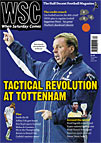 Supporters Direct is gaining momentum and credibility, with friends in high places. Adam Brown reports on their annual conference
Supporters Direct is gaining momentum and credibility, with friends in high places. Adam Brown reports on their annual conference
A cabinet minister making a keynote address, a speech by the chair of the FA and even the shadow sports minister in on the act – it’s hardly what you would expect at a conference for several hundred fan activists. But this signalled just how far Supporters Direct, the government-funded agency promoting fan ownership of clubs, has travelled as it held its 2008 conference.
Supporters Direct was the one tangible benefit for fans to come out of the Blair government’s Football Task Force in 2000. Inspired by a deal at Northampton Town, in which 25 per cent of the club’s shares were put in the hands of a supporters’ trust, it was designed to enable fans to develop collective shareholdings while avoiding a compulsion for clubs to be fan-owned as exists in, for example, Germany.
The organisation has had substantial successes: nearly 150 supporters’ trusts with 120,000 members, 14 fan-owned clubs, 100 trusts with shareholdings of some sort, 45 supporter-directors. On top of that they have expanded into Scotland and Northern Ireland as well as other sports, notably rugby. Last year four fan-owned clubs gained promotion from their respective leagues (Stockport, Exeter, AFC Wimbledon and FC United), providing tangible proof that fans can both run clubs properly and compete successfully with more commercially driven outfits.
Supporters Direct has also recently completed landmark research for UEFA on the ownership and regulatory structures in European football. This research emphasises the UK’s peculiarity in the ownership structures of football and could also lead to an extension of the Supporters Direct approach across Europe in partnership with UEFA. It is also now leading new research to ascertain the social and community value of football clubs and the business benefits of fan ownership.
The timing of all this is spot-on, in a period when one crazy, over-leveraged takeover follows another, the latest “biggest ever” TV deal results in ever-inflated player salaries, and ticket prices continue to soar. Supporters Direct and the fan-owned clubs show a more sustainable alternative to the top flight, which appears to be careering toward its very own credit crunch.
Andy Burnham, the secretary of state for culture, media and sport, used the occasion to make his call for the football authorities to respond to seven key issues at the organisation’s conference. Burnham was once an administrator for the Task Force and is a former chair of Supporters Direct – he’s as friendly a figure as the organisation could hope to have in his job.
But the speech was significant for more than the fact that he chose the conference as his platform. It represented a clear shift in emphasis for the government and came just a few days after what seemed like a concerted attack on the indebtedness of English football from the FA, UEFA and the government. UEFA are now working much more closely with fans’ organisations generally; and relations between Supporters Direct and the FA have improved dramatically since Lord Triesman’s appointment.
Nobody expects a revolution, but Burnham called on football to “be a sport run like a business, not vice versa” and said it was “time for football to reassess its relationship with money”. Even though he left it to the game’s authorities to come up with solutions, this was a hell of a long way from the prostrated position the government adopted at the end of the Task Force, when it sided completely with the Premier League.
But these are different times – there are nine Premier League clubs in the hands of global tycoons, at least two (Manchester United and Liverpool) struggling to service enormous debts and several others in desperate need of financial solace, while Game 39 and the desire to “go global” are hanging around like a bad smell. Garry Cook, Manchester City’s new gung‑ho “executive chairman”, is leading calls for a Premier League of ten or 14 teams, no relegation or promotion, and a more globalised competition. As Triesman argued, this isn’t now about a turf war or a power struggle with the Premier League, it’s about the good of the game.
Despite success lower down the divisions, the forces ranged against Supporters Direct in the top flight are enormous. Attempts to create a trust at City floundered amid fans calling on each other to sell their shares to ease Thaksin Shinawatra’s takeover – literally, a sell-out. The biggest trust at Man Utd, with a reported 30,000 members, was powerless to stop the Glazer takeover – raising £800 million is after all a tall ask for anyone. Liverpool fans’ opposition to Tom Hicks and George Gillett appears too diffuse to get anywhere.
Burnham, Michel Platini, Triesman and others are now extolling the rhetoric of fan ownership as a solution. Supporters Direct is increasingly sophisticated in its arguments and finding favour from its lobbying. Yet unfettered ownership is running free in professional football’s top flight. So where does the answer lie? As Supporters Direct’s research and work shows, it will ultimately come down to a new regulatory system, backed by a gradual evolution of fan ownership from below.
From WSC 262 December 2008